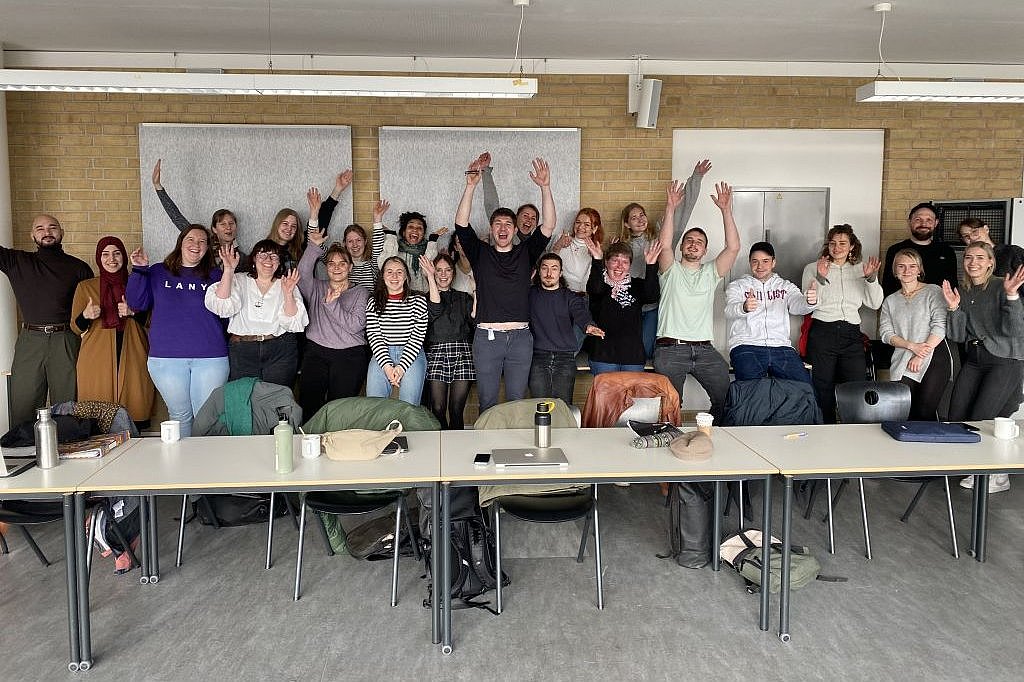The idea to hold the Climate Challenge at ASH Berlin came from the student sustainability initiative trASHform. The students took part in the #climatechallenge workshop series organized by netzwerk n, which supports the commitment of sustainability initiatives at universities across Germany. The #climatechallenge is an educational format that combines individual changes in behavior (footprint challenge) with structural change processes (handprint challenge).
In order to create a permanent platform for the Climate Challenge at ASH Berlin, the Sustainability Office and trASHform decided to integrate the Climate Challenge into the elective course 'Education for Sustainable Development' in the summer semester of 2024. This not only gave trASHform a boost, but was also a decision entirely in the spirit of education for sustainable development (ESD). This is because an important objective of this educational approach lies in the Whole Institution Approach. Education for sustainable development does not just want to be an accessory, it wants to shake up the entire educational institution. Cooperation between different stakeholders is a step in this direction. ESD concepts also emphasize an action orientation. Whether it is the concept of design competence, transformative or transgressive learning - the aim is always for learners to develop opportunities for action for sustainable development. The Climate Challenge fits perfectly into this picture.
During the preparations, a major issue was that the Climate Challenge could be seen as a depoliticizing approach. We believe that it is important to address the individual level of action, as the vast majority of lifestyles in Germany are unsustainable. There are often socio-political reasons for this, but it is also linked to individual decisions. Secondly, the Climate Challenge does not stop at individual behavior. It uses them as a starting point to make the common handprint tangible, to reflect on political obstacles and conditions of possibility and to think together about alternative structures at universities and in society.
In their book "Imperiale Lebensweise" (2017), Ulrich Brand and Markus Wissen assume that "many alternatives sometimes emerge quite unspectacularly, that they consist of withdrawing from today's norms of life and consumption, no longer following explicit and implicit rules, no longer accepting and interrupting certain practices and assumptions" (ibid.: 177f.). In this logic, we understand the Climate Challenge as an experiential space for contradicting everyday cultural normalities and subversively processing them by acting differently.
Anyone who would like to take part in this search and learning process is welcome to join in with their own climate-friendly project. Registration is possible at trashform@ ash-berlin.eu or nachhaltigkeit@ ash-berlin.eu. There will be an evaluation workshop for the Climate Challenge on 29.05.2024 from 8:30 to 10 a.m. in room 333.



